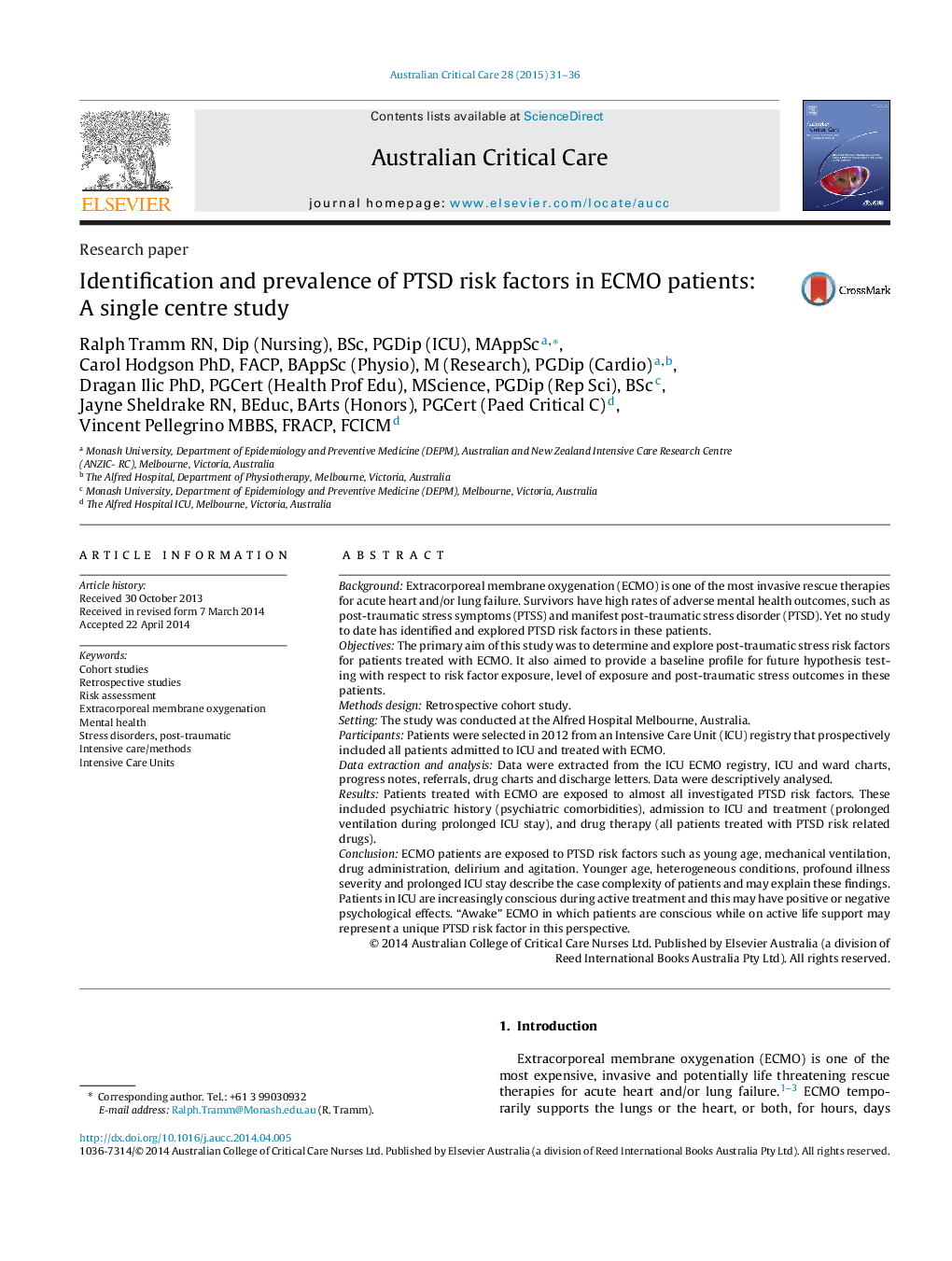| کد مقاله | کد نشریه | سال انتشار | مقاله انگلیسی | نسخه تمام متن |
|---|---|---|---|---|
| 2607116 | 1134232 | 2015 | 6 صفحه PDF | دانلود رایگان |
BackgroundExtracorporeal membrane oxygenation (ECMO) is one of the most invasive rescue therapies for acute heart and/or lung failure. Survivors have high rates of adverse mental health outcomes, such as post-traumatic stress symptoms (PTSS) and manifest post-traumatic stress disorder (PTSD). Yet no study to date has identified and explored PTSD risk factors in these patients.ObjectivesThe primary aim of this study was to determine and explore post-traumatic stress risk factors for patients treated with ECMO. It also aimed to provide a baseline profile for future hypothesis testing with respect to risk factor exposure, level of exposure and post-traumatic stress outcomes in these patients.Methods designRetrospective cohort study.SettingThe study was conducted at the Alfred Hospital Melbourne, Australia.ParticipantsPatients were selected in 2012 from an Intensive Care Unit (ICU) registry that prospectively included all patients admitted to ICU and treated with ECMO.Data extraction and analysisData were extracted from the ICU ECMO registry, ICU and ward charts, progress notes, referrals, drug charts and discharge letters. Data were descriptively analysed.ResultsPatients treated with ECMO are exposed to almost all investigated PTSD risk factors. These included psychiatric history (psychiatric comorbidities), admission to ICU and treatment (prolonged ventilation during prolonged ICU stay), and drug therapy (all patients treated with PTSD risk related drugs).ConclusionECMO patients are exposed to PTSD risk factors such as young age, mechanical ventilation, drug administration, delirium and agitation. Younger age, heterogeneous conditions, profound illness severity and prolonged ICU stay describe the case complexity of patients and may explain these findings. Patients in ICU are increasingly conscious during active treatment and this may have positive or negative psychological effects. “Awake” ECMO in which patients are conscious while on active life support may represent a unique PTSD risk factor in this perspective.
Journal: Australian Critical Care - Volume 28, Issue 1, February 2015, Pages 31–36
